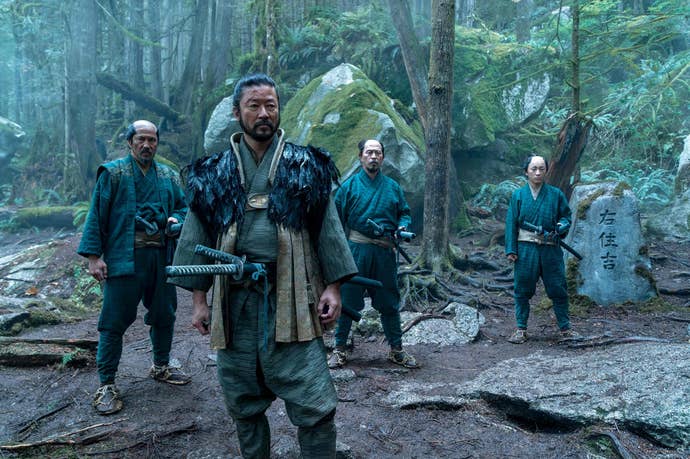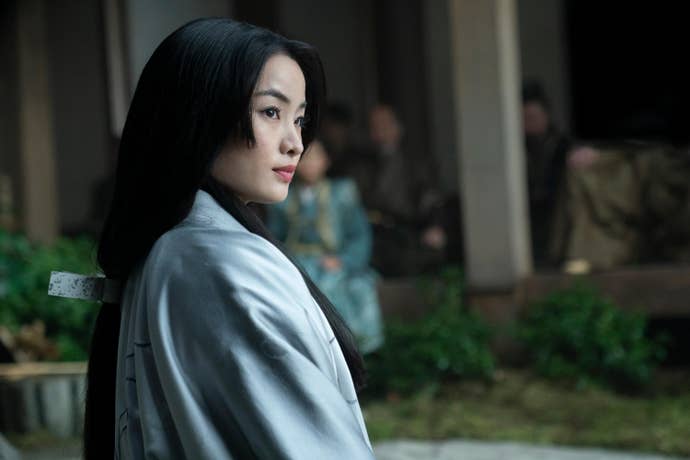As somebody who has all the time taken an curiosity in Japanese historical past, James Clavell’s 1975 novel Shōgun is considered one of my all-time favourite books. It’s an attractive premise: the story of the primary Englishman to achieve Japan and his experiences inside the nation. A struggle for survival results in an precise necessary function, our adventuring lead in the end rubbing shoulders with a few of Japan’s most necessary and elite historic figures.
It’s an intriguing journey that masquerades as a historical past e-book – or maybe it’s the opposite approach round?
The reality is, Clavell performed pretty quick and misplaced with the precise historical past. Shogun’s protagonist John Blackthorne is immediately primarily based on William Adams, who was the primary Englishman to achieve Japan. Adams was an necessary determine – however Clavell takes it fairly a bit additional.
Adams did certainly turn into one of many first Westerners to be granted the title of Samurai, and have become an indispensable ally and advisor to Tokugawa Ieyasu, the chief who would deliver wide-scale peace to Japan. Many interactions in Clavell’s novel and the present are immediately primarily based on Adams’ personal diaries. However Adams wasn’t actually concerned within the better goings on, and definitely wasn’t a key participant within the occasions that turned Seventeenth-century Japan on its head.
Clavell correctly didn’t care. He performs with historical past in one of the best ways an entertaining novel can. It’s true ‘historic fiction’ – emphasis on each phrases, not only one. Clavell retains the broad strokes right, however invents and tweaks within the margins.

Because the westerner’s window into this vastly totally different world, Blackthrone turns into immediately embroiled in historical past’s main occasions greater than his inspiration ever did whereas remaining fascinatingly with out energy or company, swept alongside into occasions a lot better than him. Even with the modifications, the vibe, so to talk, is traditionally sound.
One has to think about that have been he nonetheless alive, Clavell would approve of this adaptation’s method. It treats his novel in an identical option to how his novel handled historical past – as a broad sketch, necessary to respect however not precisely 100% sacred. The result’s a distinct present to the TV model of Shogun that Clavell was immediately concerned in again within the Nineteen Eighties – but it surely’s higher for it.
The 80s TV miniseries sits in a peculiar place. It was well-reviewed and stays well-liked within the West – however in Japan it garnered a lot criticism for being a shallow illustration of an important interval of that nation’s historical past. 4 a long time later we dwell in a much more worldwide world – and so it’s solely proper {that a} trendy illustration would actually imbue the Japanese perspective extra correctly. A raft of Japanese creatives have been recruited, together with Hiroyuki Sanada as each a key main actor and a producer. The result’s tangible on-screen.
Clavell described his authentic e-book as “passionately pro-Japanese”, however this arguably wasn’t one thing matched in its eighties adaptation. Right here, it feels so: genuine, grounded, and respectful – but additionally unflinching in its depiction of among the nastier components of Japanese society in that time period. The vast majority of the present’s dialogue is merely subtitled Japanese, and its forged is studded with actors that gained’t be so well-known to us Westerners, however are regulars in Japanese productions. Clavell’s ardour is carried over extra clearly on this adaptation and needs to be clear to all, even those that haven’t learn the unique e-book or watched the eighties TV retelling.
However maybe what most impresses me about Shogun 2024 is its sense of restraint. Having set out that it’s keen to make some pretty vital modifications from the e-book, it may go nuts – but it surely doesn’t. The truth is, usually issues are modified from the e-book to deliver them again to be extra carefully aligned with the actual historical past – the alternative of bombast.
Let me give a transparent and apparent instance: this isn’t a present about battles and combating. There are explosions of violence as lives are taken with brutal effectivity – but it surely’s not an motion present, regardless of the posters depicting Sanada’s highly effective Lord Yoshii Toranaga (Shogun’s model of historical past’s Tokugawa) atop a horse, samurai sword drawn. The posters are, to be sincere, a little bit of a lie.
The actual life model of those occasions culminate within the Battle of Sekigahara, an epic showdown for the destiny of Japan. In our bombast-obsessed current day, it’d be straightforward to take that and run with it, topping the sequence off with some enormous, never-ending battle the place wave after wave of CG-duplicated stuntmen smash into one another. However, no: it is a present concerning the characters.

The battle is glossed over, in actual fact – that’s the vacation spot. The present surmises – appropriately – that the domino-like sequence of occasions main as much as the battle are extra fascinating than the struggle itself. The truth is, the entire level is that by the point these fights roll round, they’re fait accompli; their outcomes are already decided. It’s no actual spoiler to say the outcomes of that fateful battle are disclosed in a blink-and-you’ll-miss-it flash ahead. That is retained from the e-book.
This isn’t only a present about characters, although. To be particular, it is a present about phrases. About their energy, their significance. Toranaga’s pure state is to watch and assume – earlier than performing, earlier than combating, even earlier than talking. Cosmo Jarvis spends a lot of his efficiency depicting an excellent undercurrent of frustration and bewilderment – everybody round him speaking in Japanese, his understanding restricted. Because the sequence progresses and his understanding grows, the temper begins to shift. His efficiency subtly turns. He understands extra; so can we.
With this in thoughts, it’s applicable that the present’s break-out star is Anna Sawai and her depiction of Toda Mariko – defacto translator to Blackthorne, however a lot extra apart from. Her efficiency is a tour-de-force that ought to result in loads of awards – and it’s applicable, in a way, that this present’s beating coronary heart is a personality who most pointedly straddles true historical past and the fictions the present weaves in a very fascinating approach.
A gradual burn that builds and builds, getting higher with every episode, Shogun is a triumph. Whereas the names have modified, it’s additionally a comparatively first rate historical past primer concerning the broad strokes of how considered one of Japan’s best leaders got here to energy.
Finally, it’s probably the greatest TV exhibits in years. It leaves me a bit unhappy that there isn’t a extra to adapt – Clavell’s novel ends the place the present does, and as Steph argued elsewhere on the positioning, it wouldn’t really feel proper to proceed to adapt the actual historical past from this level with out his contact. However on the identical time, typically much less is extra – and in its all-too-brief ten episodes, Shogun proves that rule. Watch it.
Shogun is on the market to look at in full now on Hulu within the US, and on Disney+ in lots of different territories worldwide.

